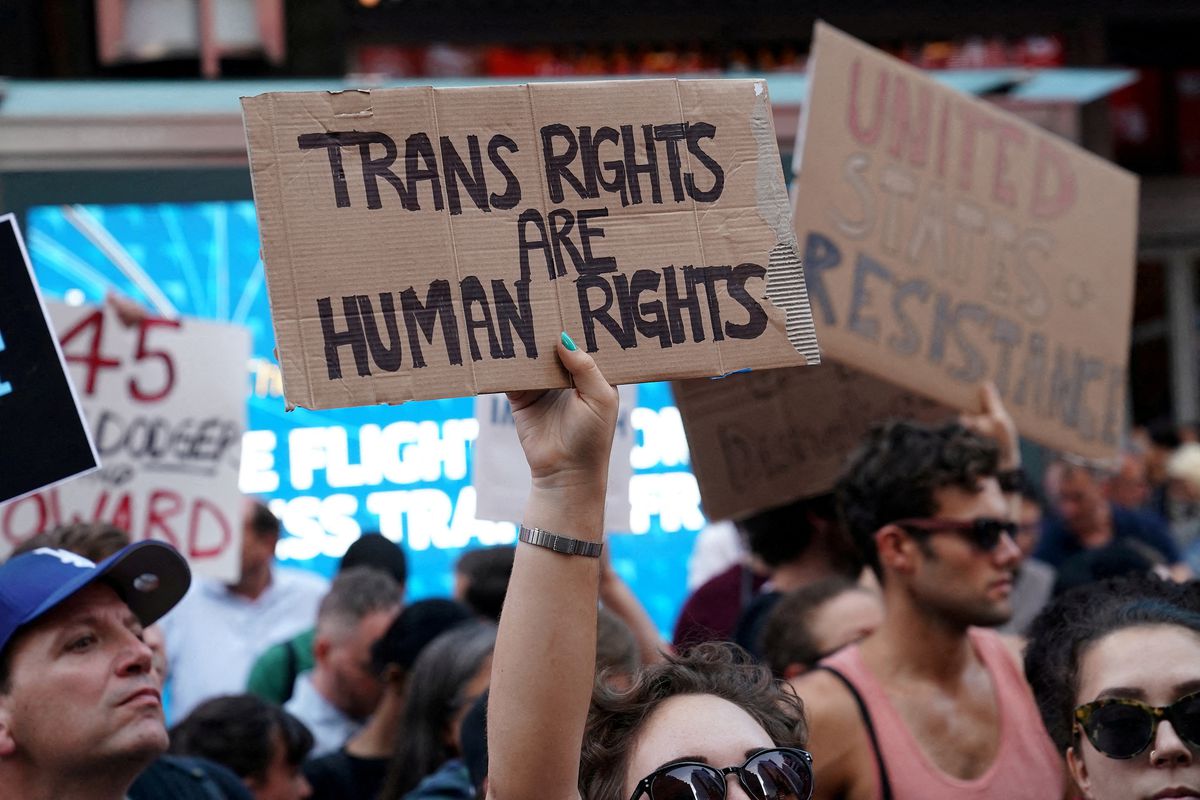
For the time being, transgender kids in Alabama can use medicine to transition, according to a federal judge who blocked part of a state ban on gender-affirming therapy.
The interim injunction was ordered by United States District Judge Liles Burke less than a week after the statute took effect on May 8.
Burke, who was appointed by Republican President Donald Trump, said higher court precedents demonstrated that parents have the right to guide their children’s medical care provided it meets accepted standards and that transgender persons are protected from discrimination under federal law.
The bill makes providing or administering puberty blockers and hormone therapy to transgender and nonbinary kids under the age of 19 a criminal punishable by up to ten years in prison. It also prohibits surgical treatments for juveniles, which specialists say are extremely rare.
Burke kept the section of the bill that prohibits sex-altering procedures and other measures that make it illegal for school administrators to keep certain gender-identity information from parents hidden.
The lawsuit, filed on behalf of four Alabama families, two physicians, and a clergyman, claims that the prohibition will injure the plaintiffs ‘immediately and irreparably,’ and that it violates numerous of their fundamental rights.
The United States Department of Justice has joined the action, claiming that the Alabama statute infringes on the United States Constitution’s promise of equal treatment under the law.
‘I believe very firmly that if the Good Lord formed you a guy, you are a boy,’ Republican Governor Kay Ivey said after signing the measure last month.
Last year, the courts in Arkansas blocked the implementation of a similar but less far-reaching measure.
In an interview this week, Morissa Ladinsky, a physician who co-runs a gender health clinic in Birmingham and is a witness for the plaintiffs, said, ‘Never before has a state law mandated a choice between a potential felony conviction versus turning our back on the basic tenets of our Hippocratic oath.’
Transition-related medical care, according to major medical organisations and mental health professionals, saves lives by lowering the risk of depression and suicide in transgender and nonbinary people.
Before the November midterm elections, transgender rights have become a wedge issue in the culture wars. Hundreds of Republican proposals have been submitted in state legislatures, the most of which are aimed against transgender people.
Many conservative groups and Republicans support the measures as safeguards for children and parental rights. Democrats and LGBTQ organisations are among those who oppose the bill, claiming that it is hurtful, unneeded, and would have disastrous effects for transgender youngsters.
According to The Trevor Project’s study, 93 percent of transgender and nonbinary teenagers are concerned about trans persons ‘being refused access to gender-affirming medical care owing to state or local restrictions.’
Jennifer Levi, director of the GLAAD Transgender Rights Project, described the verdict to freeze part of the Alabama bill as ‘exceptional relief. Parents should not be penalised for wanting the best for their children.’

Post Your Comments